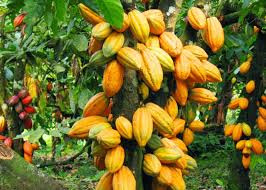The Cocoa Association of Nigeria (CAN) has raised concerns over the worsening state of the cocoa processing industry in the country, blaming high production costs, poor funding, and overtaxation for the near-collapse of the once-thriving sector. Speaking recently, President of the association, Mufutau Abolarinwa, said that many cocoa processing companies have shut down while the few still operating are struggling to survive.
Abolarinwa explained that while cocoa remains a major export crop with huge economic potential, the environment for doing business in Nigeria has become increasingly hostile for actors in the value chain, especially farmers and processors. According to him, the cocoa value chain is being suffocated by poor funding for critical inputs like seedlings, as well as excessive levies and charges by government agencies at all levels.
“We had a high number of cocoa processing companies in Nigeria in the past. Most of them are now moribund. They are crashing because they cannot compete or function well. The existing ones are bleeding,” he said.
Despite recent pronouncements by the Federal Government to promote local cocoa processing and chocolate production, Abolarinwa said only a few companies have the capacity to make chocolate in Nigeria, including one in Ondo State and a few other smaller players across the country. He stressed that without targeted support, these processors may also shut down.
He described the cocoa business in Nigeria as becoming increasingly unviable. “One of the major issues is funding. Beyond funding, the cost of producing cocoa is too exorbitant because of power and other factors. Farmers don’t even have enough money to buy chemicals and other items,” he stated.
The association also lamented the poor treatment of cocoa processors during transportation of their goods across states. Abolarinwa said processors face multiple levies from federal, state, and local governments while moving cocoa from producing areas like Ikom in Cross River State to Lagos ports for export.
“There are too many agencies along the road. After you’ve paid the official charges to the Federal Government, the state and local governments impose their own. The cocoa trade is not free because of these unnecessary bottlenecks and corruption,” he said, urging the government to take action.
He further pointed out that even within Lagos, moving containers from Berger to the port attracts several unofficial charges due to touts and multiple regulatory agencies. “So much money is lost along that corridor. All levels of government have not given cocoa farmers and processors any ease of doing business. It’s only on paper,” he added.
According to him, the harsh business climate has made it easier and cheaper to buy cocoa from neighbouring countries like Cameroon, Togo, and Ghana. “It is now easier for me, as a Nigerian, to buy cocoa in Ghana and ship it from there than to deal with the stress here,” he noted.
He advised the government to harmonise taxes and charges and merge overlapping agencies. “We have the Nigerian Agricultural Quarantine Service, Federal Produce Inspection Service, and NAFDAC all charging different fees. What is NAFDAC’s role in cocoa exports? Why are they charging exporters?” he asked.
The association also called for better funding of the Cocoa Research Institute of Nigeria (CRIN), noting that without proper support, the industry cannot grow. “We talk about moving production from 300,000 to 500,000 tonnes, but what is the government doing to support that ambition? CRIN must be properly funded,” he said.
Abolarinwa welcomed the proposed National Cocoa Management Board (NCMB), which is currently awaiting Senate ratification, as a good step, but stressed the need for proper implementation. He urged the Federal Ministries of Agriculture and Industry, Trade and Investment to actively support cocoa development and help ensure that quality seedlings are made available across cocoa-producing states.
He expressed hope following a recent meeting between cocoa stakeholders and Minister of Finance, Wale Edun, where issues affecting the sector were discussed. “We’ve told them our problems. Now we wait to see how they implement the solutions,” he said.
CAN praised the planned NCMB as a “major development,” and recommended that the board adopt the 10-year National Cocoa Development Plan earlier developed by the now-defunct National Cocoa Management Committee. However, the association warned that the true challenge is not setting up the board but implementing its mandate effectively.
“There is nothing to celebrate yet until we see how this board will function to bring positive changes to the lives of cocoa farmers, processors, and exporters,” Abolarinwa said.
The Cocoa Farmers Association of Nigeria, led by Adeola Adegoke, also echoed CAN’s sentiments. Adegoke called for the NCMB to adopt a regulatory model focused on development and protection of the industry without engaging in cocoa trade itself.
CAN urged both federal and state governments to step up efforts to revamp Nigeria’s cocoa sector and unlock its full economic potential.
